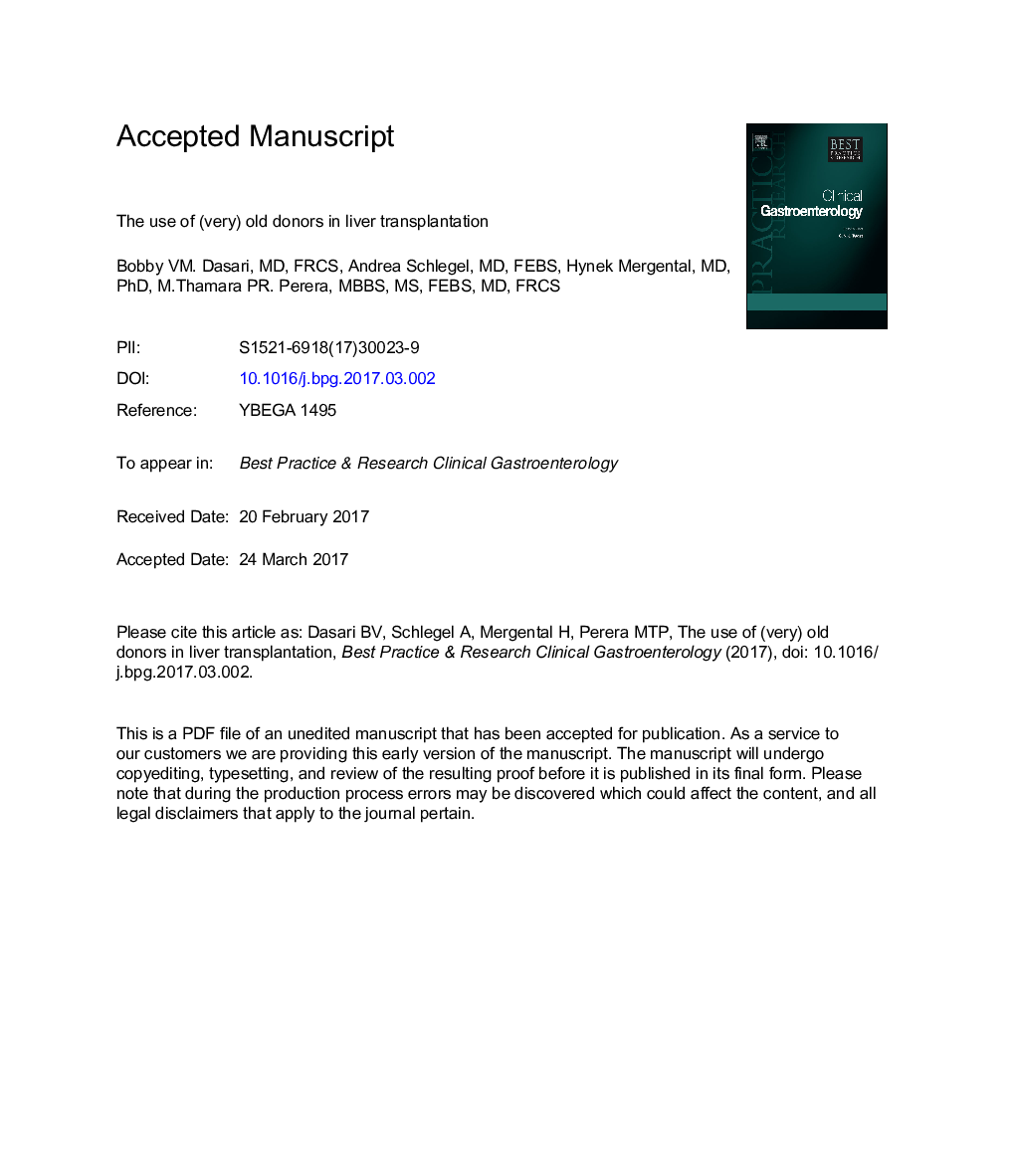| Article ID | Journal | Published Year | Pages | File Type |
|---|---|---|---|---|
| 5654516 | Best Practice & Research Clinical Gastroenterology | 2017 | 27 Pages |
Abstract
The process of ageing has an impact on the entire human body including the organ systems. In transplantation, professionals are daily faced with risk assessment of suitable donor offers , whether to accept a liver graft for a specific recipient. In this context, livers from elderly donors are more frequently accepted for transplantation, to increase the donor pool and compensate the high waiting list mortality. In the current practice it is not unusual to accept 60-year old donor livers for transplantation, as the donor demographics have significantly changed over the years. However, controversy exists regarding the use of livers from donors above 70 or 80 years, particular in combination with other risk factors, e.g. liver steatosis, warm ischaemia or long cold storage. This review focuses first on the impact of ageing on liver morphology and function. Second, we will highlight outcome after transplantation from elderly donors. Finally, we describe further risk factors and donor-recipient selection under the scope of old donor organs and include our institutional experience and policy.
Keywords
TLR-4HMPMarginal donorsRemote ischaemic preconditioningSECDBDNRPRIPCIPFDCDHCCIschaemic preconditioningROSAdenosine TriphosphateATPNon-alcoholic steatohepatitisHOPEDonation after Circulatory Deathdonation after brain deathextended criteria donorsinterleukinoxygen free radicalsKupffer cellsSinusoidal endothelial cellsendoplasmic reticulumVascular endothelial growth factorVascular Endothelial Growth Factor (VEGF)Model of End Stage Liver DiseaseNash normothermic regional perfusionhypothermic oxygenated perfusionHypothermic machine perfusionLiver transplantationHepatocellular carcinomaMELD
Related Topics
Health Sciences
Medicine and Dentistry
Endocrinology, Diabetes and Metabolism
Authors
Bobby V.M. MD, FRCS, Andrea MD, FEBS, Hynek MD, PhD, M. Thamara P.R. MBBS, MS, FEBS, MD, FRCS,
